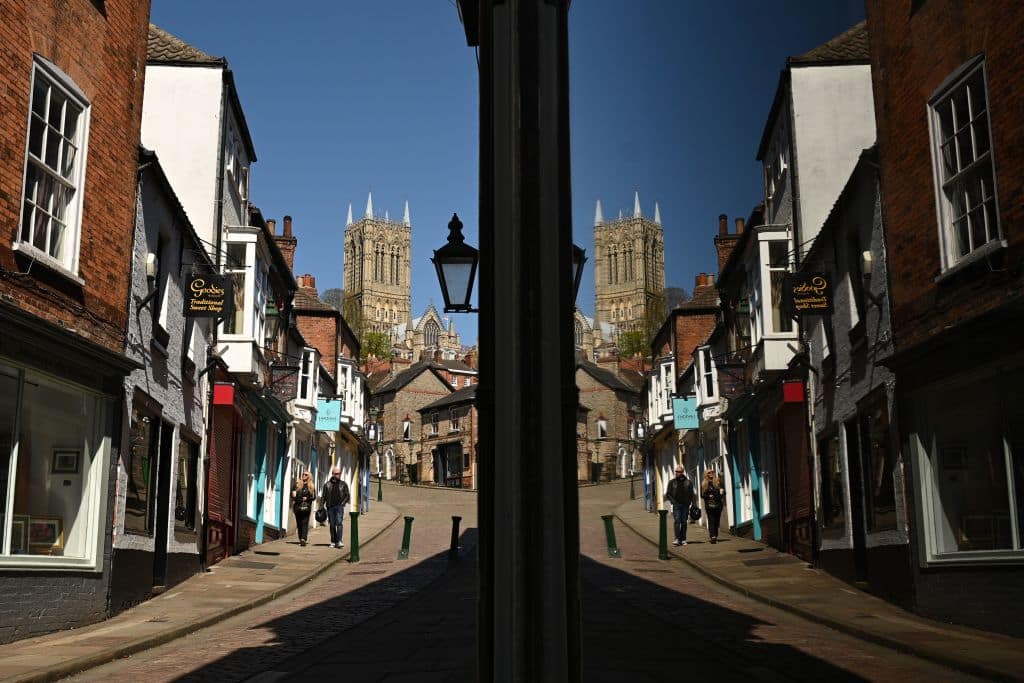William Byrd died 400 years ago this month. Various commemorative events and services are accordingly taking place, including in Lincoln, the composer’s adopted home, and at Edington’s festival of liturgical music in August. A notable Catholic, Byrd spent most of his life within the Tudor court. But such was the agility with which he preserved his faith that he was rarely troubled by the authorities. Quite the opposite. He and Thomas Tallis were granted a monopoly for printing music and when a case was raised against Byrd for his Catholic activities, it was halted by the Queen.
I first heard his music at the age of 14. A wannabe countertenor, I was nonetheless hesitant about most Renaissance repertoire. To my untrained ears, it all sounded the same, including Byrd’s Mass for Four Voices. This essentially austere creation was published, rather daringly, during the 1590s, albeit without the composer listed on its title page.
For a teenager obsessed with the luxuriousness of Mahler or Tchaikovsky, Byrd’s Mass was far too reserved. Gradually, however, I found the hooks on which to hang my hopes within its overlapping pleas of “dona nobis pacem”, as Byrd’s recusant music paved the way to my conversion. Today, even if my faith falters, his output remains a mainstay.
It is relatively rare to hear this repertoire within the Roman liturgy – a handful of cathedrals and abbeys notwithstanding. You are more likely to encounter Byrd in full flight thanks to professional consorts like the Gesualdo Six, who have just released two new recordings, or, ironically enough, within an Anglican setting. And so it was in Wells, where my partner, Alastair, is headmaster of the Cathedral School. Only recently, sitting in the nave, I rediscovered Byrd’s searing setting of Psalm 120.
I’d studied Ad Dominum cum tribularer at university, but it had somehow disappeared from memory. As the Cathedral choir rose from modest prayerfulness to an unbridled roar, their eight-part polyphony pointed to a peaceful mind surrounded by deceitful tongues. The piece was never published by Byrd, though it proves as pertinent now as it must have done to him at the end of a former Elizabethan era.
Byrd’s contemporary Shakespeare once asked, “What’s in a name?” The composer certainly had a fitting moniker for one singing in the wilderness. But I wonder whether I’m becoming rather bad at remembering names.
Every morning, I take our sprocker spaniel Nimrod for a walk. He was born in Here-fordshire and needed a suitably Elgarian title. As the day begins, I tramp through the dew with our mighty hunter and bid “good morning” to those doing the same. But even if the pooches are well known to me – there’s Patch and Barney, as well as Haggis and Neeps, the Scottish butcher’s dogs – I tend to gallop through conversations with their owners, hoping to save any embarrassment.
Only the other day, I felt that familiar flush of discomfort, so finally picked up the courage to ask Patch’s owner her name. We’ve spoken for years – in snow, fog and hail. I know where she goes on holiday and even her granddaughter, who attends Alastair’s school. But I couldn’t have told you her name, even if my life depended on it. Now I know it’s Ruth and, true to form, she is a model of kindness.
Names are particularly tricky at this point in the year. With many end-of-term events, Alastair and I are expected to know them all. And even though he’s a superb headmaster, my other half has even more conspicuous lags, leaving me none the wiser. The same was true when discussing politics with a friend over dinner last week. Lamenting the current crowd, Alastair turned to praising past parliamentarians: “These are the names we remember,” he exclaimed, before mixing up Douglas Hurd and Alec Douglas-Home.
There are comparable difficulties when it comes to Francis Poulenc, whose surname is prey to the worst pronunciation crimes. Unlike Olivier Messiaen’s typically nasal “en”, Poulenc ends with an “ank” – like bank. And he’s been forefront in my mind after Glyndebourne’s staggering new production of Dialogues des Carmélites. “A monk and a rogue”, Poulenc wrote his opera about guillotined martyrs during the 1950s, almost two decades after he’d rediscovered the faith of his Aveyron roots.
We’re driving through that area this summer, visiting Conques and crossing Norman Foster’s Viaduc de Millau. But before we test our sense of vertigo, pilgrimage will be made to Notre Dame de Rocamadour in the neighbouring region of Lot. It was here, in 1936, that Poulenc stood beneath the vierge noire after the violent death of a fellow composer and found his beliefs revived.
Luckily, piety never spoiled his passion for the here and now. And, as a result, Poulenc’s religious works are often wilful in their excess, while his most intimate mélodies can sound like a prayer. Both sides of that personality will emanate from our car stereo as we travel south. And I’m sure the dog-loving Poulenc would have adored Nimrod, who’ll follow behind in the boot.
<em>Gavin Plumley is a cultural historian. His first book, A Home for All Seasons, is out now in paperback.</em>



